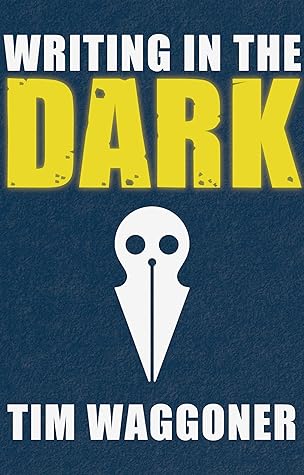More on this book
Kindle Notes & Highlights
The Universe is not orderly and benign, and is in fact chaotic and malicious. This is the terrible revelation that lies at the core of all horror fiction, and it’s what differentiates it from other types.
To effectively write a Terror-focused scene, you need to show Terror through a close identification with one character’s point of view, letting readers experience the awful realization (whatever it may be) with them.
Horror. Horror is an immediate reaction to a threat—disbelief, denial, turning away. There’s nothing deep about this emotion. No intellectual reaction. No slow build. A werewolf jumps out of a shadow-filled alley right in front of you, fangs bared and claws raised.
Horror happens in the moment.
fiction as having four primary goals: 1) To entertain, 2) to provide an aesthetic experience, 3) to evoke an emotional response, and 4) to stimulate imagination.
To entertain: Effective fiction should capture readers’ attention and hold it throughout a story. It should repay readers’ time and attention, should give them an experience they find fulfilling. When they finish a story, they should feel satisfied that their time was well spent. Why this goal is important: If readers aren’t entertained, why should they bother reading fiction at all?
To provide an aesthetic experience: Effective fiction should give readers an artistic experience through skilled use of language and imagery, innovative structure, and well-drawn characters. Originality should be strived for, and plots shouldn’t be predictable. Why this goal is important: Fiction is art as much as craft, and even casual readers have a need for artistic appreciation. A well-turned phrase, a chilling description,
To evoke an emotional response: Each story should have an emotional core and explore the emotional life of the characters in addition to whatever else may be happening.
To stimulate imagination: Interesting ideas, vivid description, and immersive point of view all help stimulate readers’ imaginations. Banal, run-of-the-mill ideas and plain, overly simplistic writing that reads more like a summary than a story don’t. Why this goal is important: For one thing, exercising our imaginations makes us smarter.
as you continue with the story, you continue making the opposite of what you want to have happen occur. This is a great way to avoid writing stale, predictable plots which readers will not only welcome, this element of uncertainty might give you added enthusiasm for your story. As you write it, you’ll be excited to see what happens next. And of course unpredictability increases suspense because both characters and readers will be off balance throughout your story.


